
Explore 8 of the world’s most sustainable cities
TripFalcon January 05, 2021
Last Update: 2021-01-05 03:52:16Paris. London. New York. Our global cities are synonymous with innovation and all things cutting edge – yet as some of the world’s worst polluters, they’re far from future-proof when it comes to climate change.
Many cities world over have committed to creating a sustainable future for people and the planet. But can our busy urban centers really go green? From zero-waste restaurants to eco-friendly architecture, here’s how eight cities are leading the way.
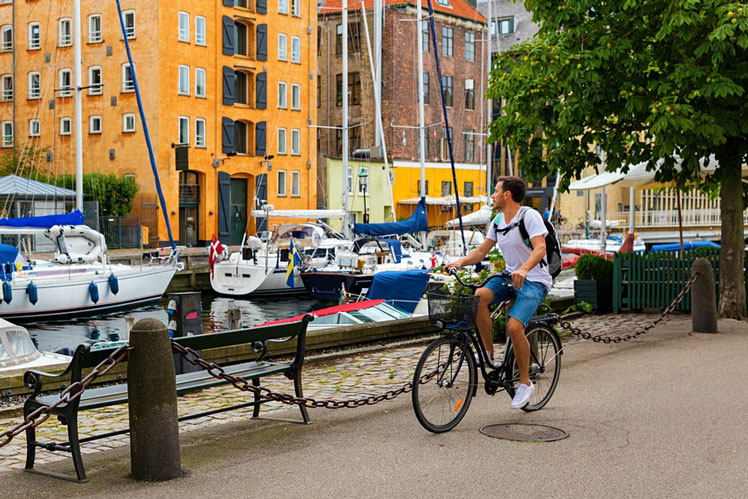
Copenhagen has a superb set of dedicated cycle routes © zstock / Shutterstock
Copenhagen, Denmark
Copenhagen aims to be the world’s first carbon neutral capital by 2025 and is making good progress. Less than 2% of the city’s waste goes to landfill; the rest is recycled or converted into energy at Copenhill (Amager Resource Center), the city’s new waste-to-energy power plant, which doubles as an artificial ski slope.
Getting around Copenhagen has never been greener, with solar-powered boats and electric buses bolstering a network of well-established cycle routes and pedestrian-friendly streets – you can even swim in the harbor’s clean waters at Islands Brygge Havnebadet.
The zero-waste movement is growing too – hungry eco-warriors can stock up on snacks at packaging-free LØS Market or book a table at Amass, where "waste" ingredients such as stems, seeds and skins are transformed into tempting dishes or composted for the restaurant’s organic garden.
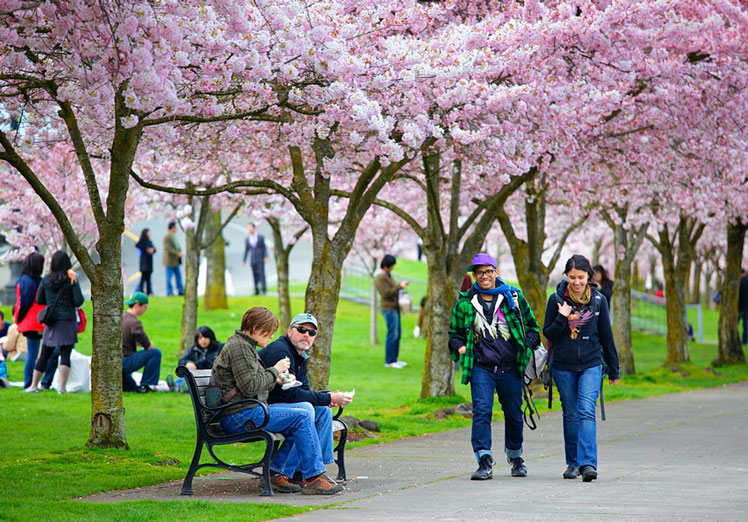
There are many lovely public parks in Portland, Oregon © DaveAlan / Getty Images
Portland, Oregon
Portland is a city literally made for lovers of the great outdoors; smart city planning, plentiful public parks and well-maintained urban forests complement the region’s natural attractions – including Mt Hood, which looms in the distance. The city is relatively pedestrian friendly and has the highest rate of biking to work of any US city.
In Portland, sustainability is all about community. An abundance of thrift shops, Little Free Libraries (a global movement adopted with gusto here), tool libraries, zero-waste pop-ups, vegan restaurants and make-do-and-mend-style workshops mean locals can easily embrace the mantra of "reduce, reuse, recycle".
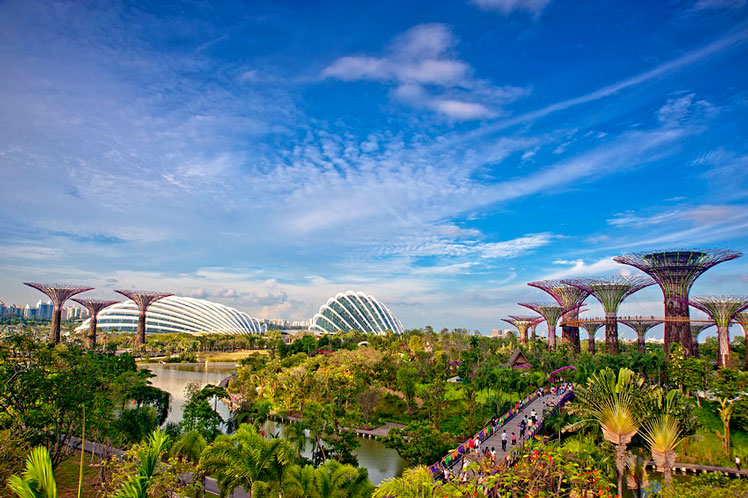
Singapore's Gardens by the Bay aims to be a model for sustainable development and conservation © wsboon images / Getty Images
Singapore
With a dense and growing population, Singapore’s waste is on the rise, meaning the compact city-state’s only landfill site Semakau is set to fill up by 2035. But if this city’s anything it’s innovative, and its efforts to provide social, environmental and economic sustainability landed it the title of most sustainable city in Asia in 2018.
Famed attractions such as Gardens by the Bay, Jewel Changi and Marina One have been designed with sustainability in mind, and by 2030 80% of the city’s architecture will be eco-friendly. The zero-waste trend is also gathering pace; stores such as Ugly Food and UnPackt are changing the way Singaporeans stock up on kitchen essentials, while The Fashion Pulpit takes sustainable fashion to a whole new level with its membership-based clothes swapping system (cash purchases also available).
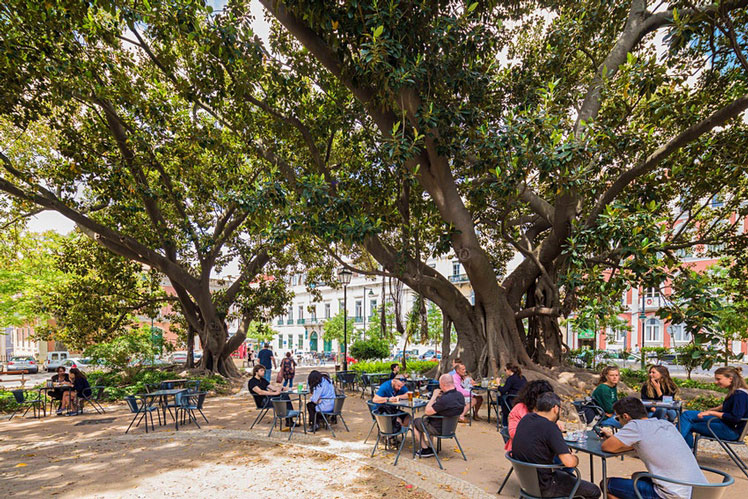
Most people in Lisbon live within 300m of a green space © Hemis / Alamy Stock Photo
Lisbon, Portugal
Lisbon was the EU Commission’s Green Capital for 2020, and with good reason. An extra 300 acres of park area have been added to the city, meaning 85% of people in Portugal’s capital now live within 300m of a green space. The use of electric vehicles is accelerating, with plenty of car charging points, electric bike, scooter and moped sharing schemes and a new fleet of electric buses. Even the abundant tourist tuk-tuks have been electric since 2017.
For eco-friendly shopping head to LX Factory, a creative hub housing upcycled fashion boutiques, vegan footwear brands and sustainable homeware stores. Hungry? Shop for packaging-free supplies at Maria Granel or try daTerra Bairro Alto’s vegan pastéis de nata.
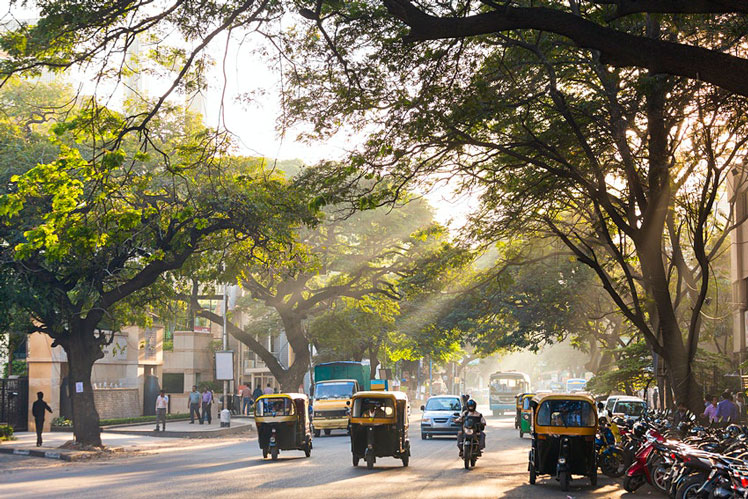
Tech companies are working to reduce traffic in Bengaluru © Peter Adams / Getty Images
Bengaluru, India
Bengaluru – India’s answer to Silicon Valley – is the joint most congested city in the world (tying with Manilla) and while tech company commuters contribute to the traffic, they’re also creating solutions. Local scooter rental company Bounce, which has added 1000 electric scooters to its fleet, Yulu e-bikes and carpooling app Quickride are all working to reduce traffic in the city.
The eco-conscious trend is growing too. You can now pick up packaging-free groceries and eco-friendly beauty products at Green Mantra Store; sip freshly-made juice from a fruit-skin or coconut-shell cup at Eat Raja; or stay at environmentally-aware Cuckoo hostel, which offers bike rental, a terrace garden and is furnished with upcycled materials.
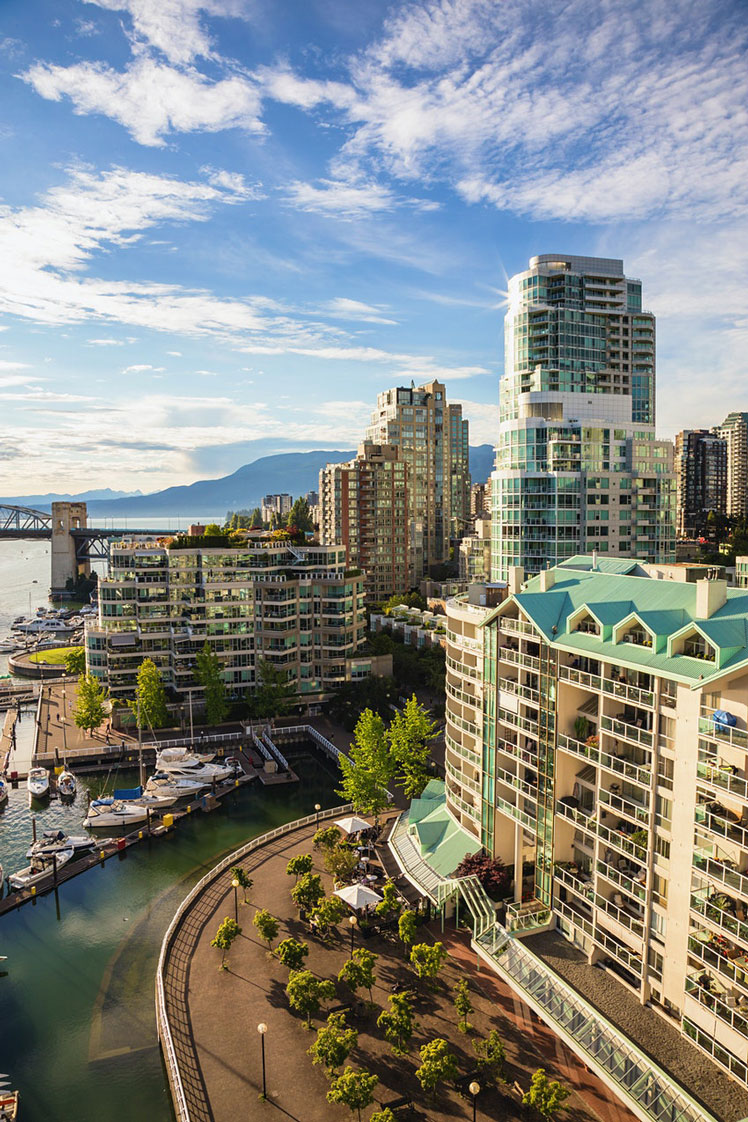
Community is at the heart of most of Vancouver's sustainable initiatives © EB Adventure Photography / Shutterstock
Vancouver, Canada
With forests, mountains and beaches all within reach, Vancouver has plenty of incentive to do its bit for the planet. Over 122,000 trees have been planted here since 2010 (with the aim of reaching 150,000); the city’s emissions are amongst the lowest in North America; and it is aiming to go entirely zero-waste by 2040 – a movement reflected in grocery stores and cafes such as Nada and Kind Cafe.
From neighborhood clean-up parties to shared gardens, community sits at the heart of many of Vancouver’s eco-friendly initiatives. Vancouver Public Library has a green roof – which helps manage rainwater, regulates the building temperature and provides a habitat for bees – as well as an accessible rooftop garden, which comes complete with drought-resistant native plants and solar panels; and the 17 mile (28km) Seaside Greenway (the longest uninterrupted waterfront path in the world) connects many of Vancouver’s public spaces, including the Stanley Park Seawall.
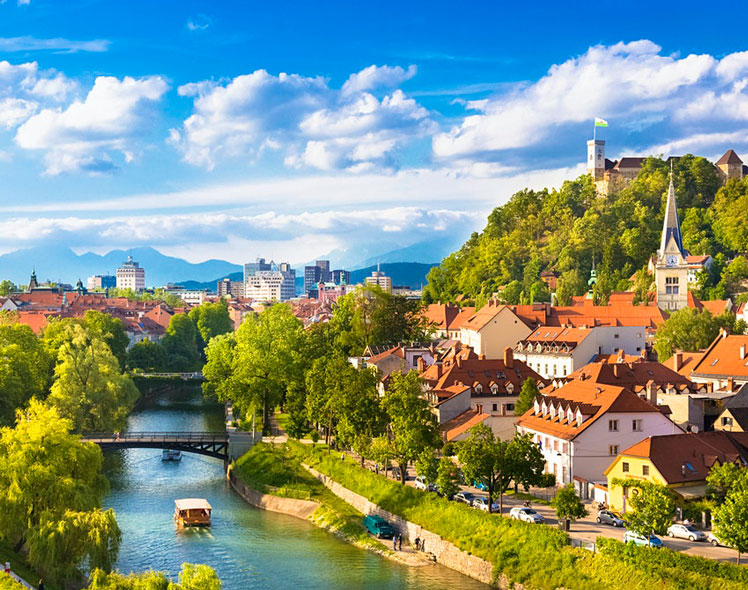
Ljubljana, the first European city to commit to a zero-waste goal © kasto80 / Getty Images
Ljubljana, Slovenia
Slovenia is known for its pristine countryside – but even its capital offers visitors a breath of fresh air. Liveable Ljubljana is extremely clean and increasingly green: streets are washed with rain and recycled water; over 10 hectares of the city center are pedestrianized; and new cutting-edge waste management systems mean the city sends 80% less waste to landfill than it did in 2008 – with the goal to reduce that to just 60kg per person per year by 2025.
Ljubljana was the first European city to commit to a zero-waste goal. The city’s waste management company Voka Snaga even operates a zero-waste vending machine that sells organic cleaning products, shampoos, vinegar and oil to customers who bring their own reusable packaging, while Rifuzl expands the offering in a bricks and mortar store.
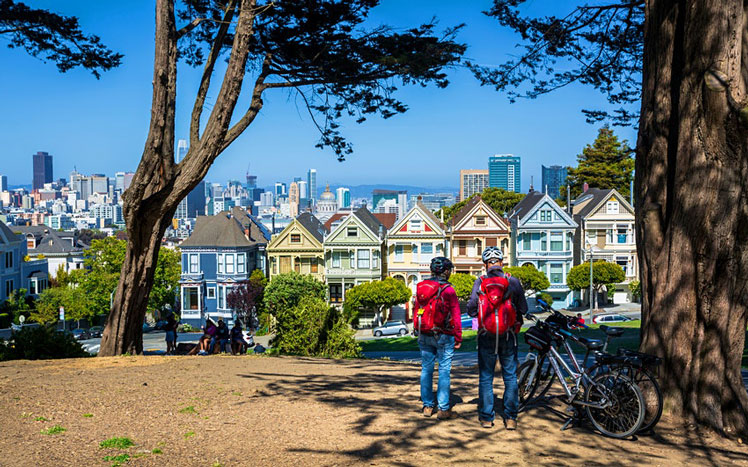
Don't let San Francisco's hills deter you from walking and cycling © Toms Auzins / Shutterstock
San Francisco, California
San Francisco was the first city in the US to ban plastic bags, and plastic straws and utensils have been outlawed since July 2019. The city sends less trash to landfill than any other in the country, with 80% of its waste being recycled, composted or reused.
What’s good for the animals is good for the planet, and you’ll find a plethora of plant-based restaurants in SF (we recommend Beloved Cafe and Gracias Madre), while bulk store Rainbow Grocery is a local institution. Want to work off those vegan treats? Don’t let those hilly streets deter you – San Francisco is the second most walkable city in the US.

